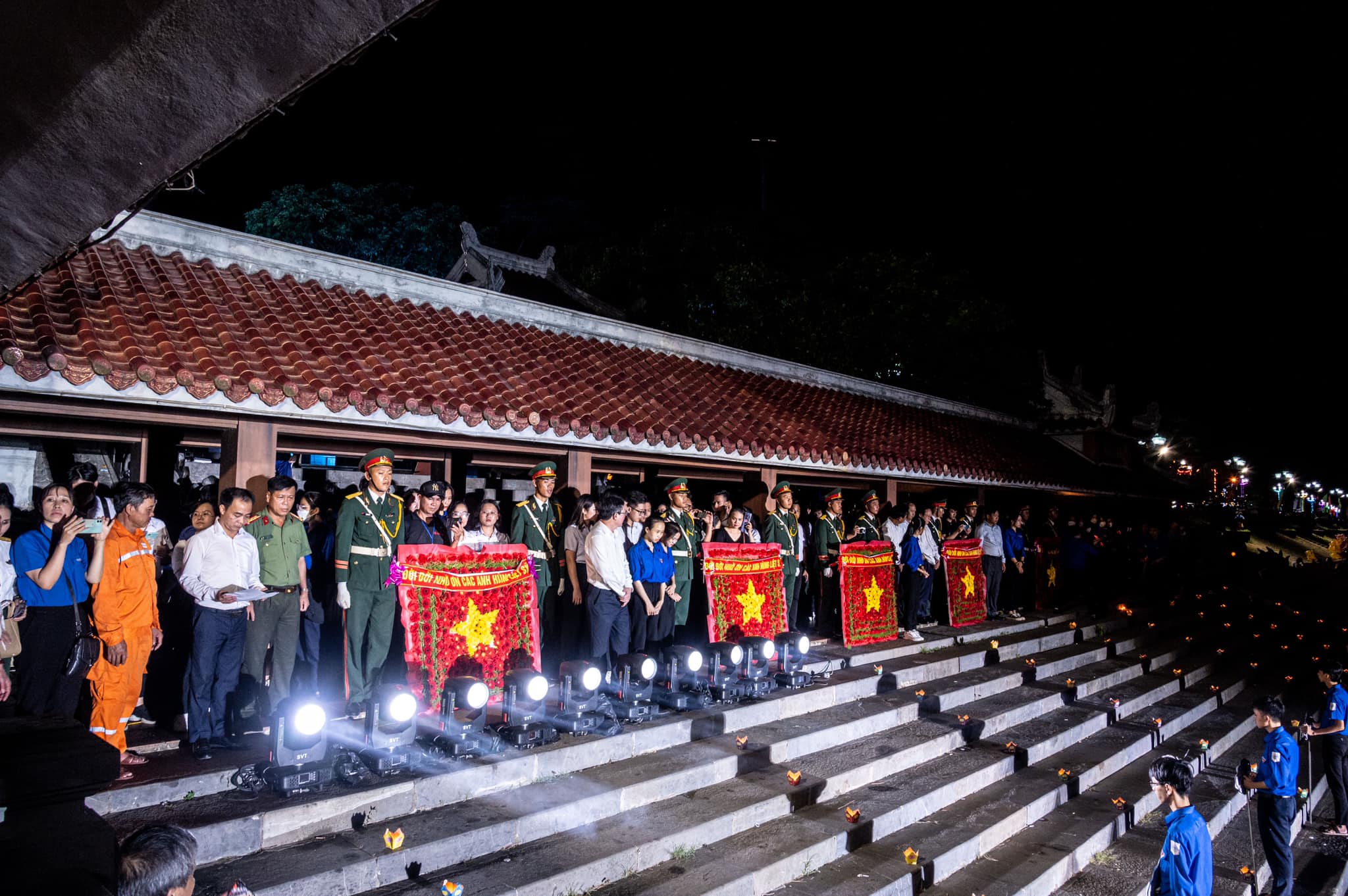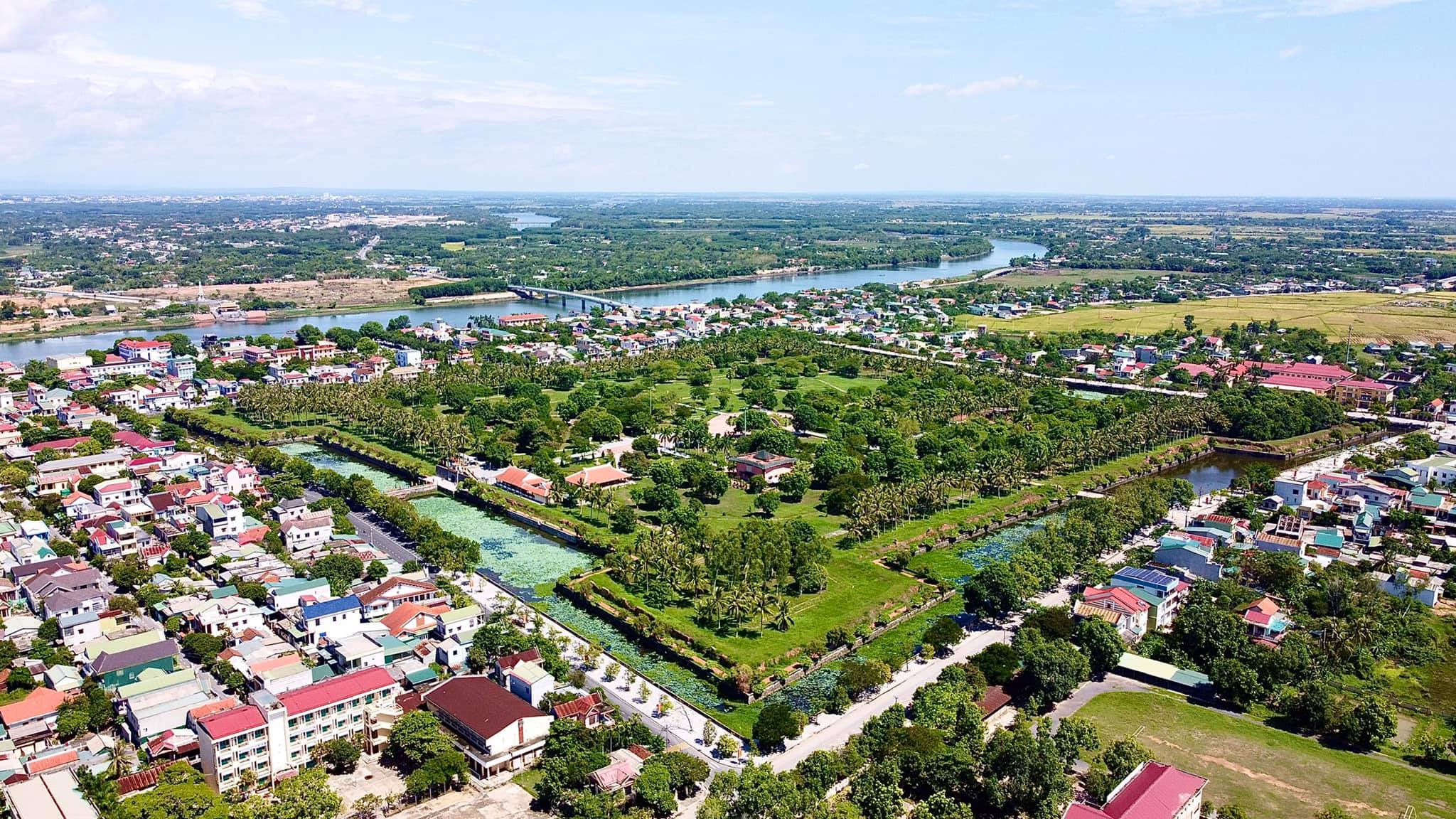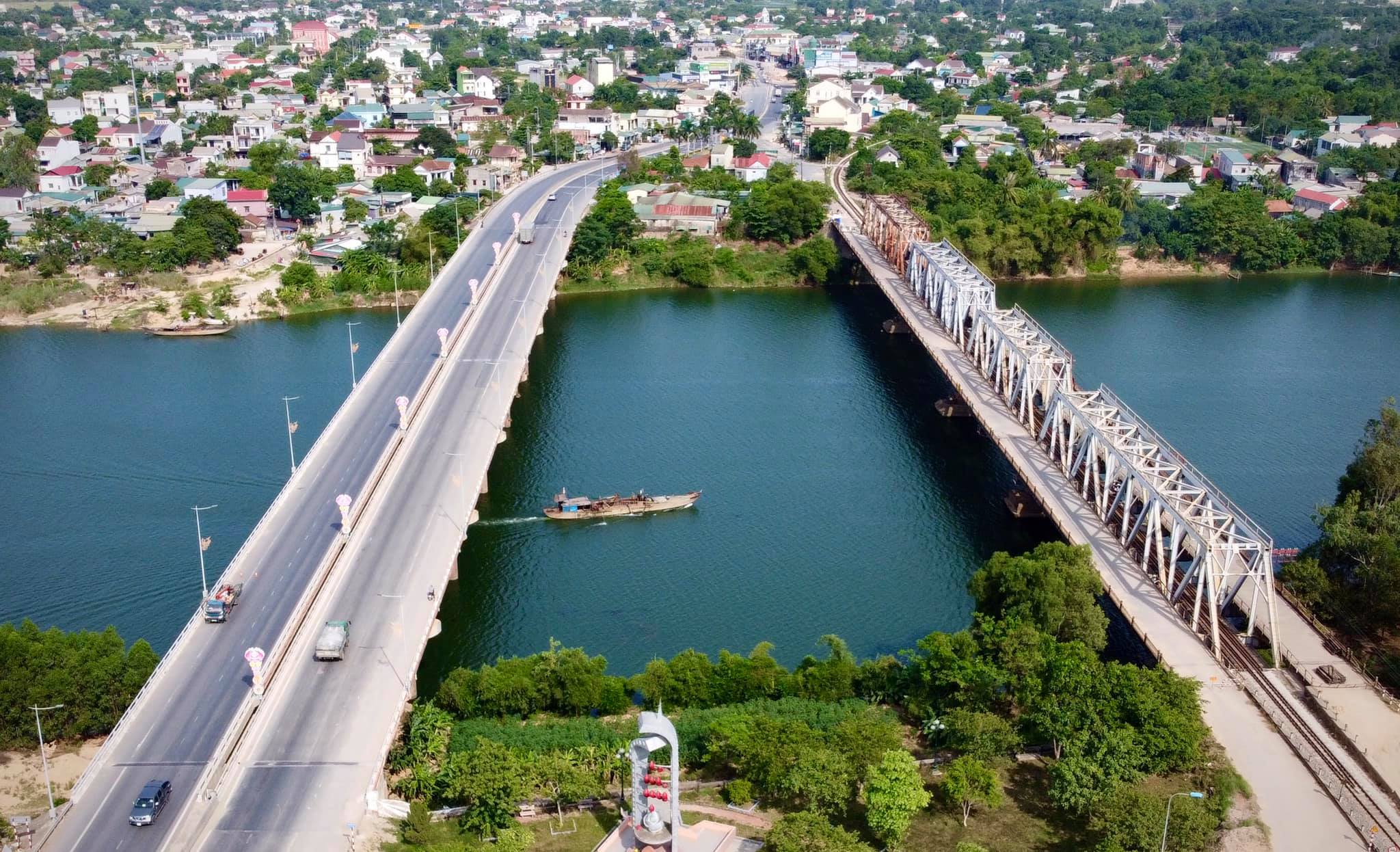Fierce and tragic
Every time when July comes, I have many indescribable emotions, a feeling of lightness mixed with a bit of nostalgia, and also an indescribable sadness. Something from the glorious days suddenly appeared in my memory.
July - Month of gratitude in Quang Tri
When I was in college, my friends often asked me where I came from. Every time, I proudly answer that I come from Quang Tri. Then they asked if Quang Tri had anything beautiful? What are the specialties of that land? I keep joking, Quang Tri has a specialty called "bomb", a specialty that few places have as much as Quang Tri. It's true, coming to Quang Tri in these historic days of July, we can feel the fierceness and pain of war and the resilience and heroism of our army and people to appreciate the peace.
When I was a child, on hot summer days, the backyard of my house, which was the battlefield of the Route 9 campaign, Khe Sanh, a fierce front of the Southern battlefield at that time, which suffered from many bombs, mines, and artillery shells remained after the war. Every time that happened, my whole family turned pale and eagerly called out each child's name like a roll call, to make sure all children were still safe. And sometimes I hear the aunts and uncles in the neighborhood talking to each other about the story of how many artillery shells, mortar shells, and bombs and mines they dug up from the ground. Thinking that, after the war, there would no longer be the sound of falling bombs, fireworks exploding, no more painful stories left by landmines, but nowadays, somewhere in the land of Quang Tri, the death still took people's lives. “Blood in the day of war, blood in the day of peace/ The price of peace is still the price of blood.” (Le Duc Duc).

Lantern night – Paying gratitude to heroic martyrs (Phan Hoai An)
According to incomplete statistics, Quang Tri is one of the provinces most affected by post-war mines in the country. 82% of the total land area of the province is contaminated by mines and explosives. There are many remaining bullets, bombs and mines. Quang Tri has more than 8,584 landmine victims. Peace was restored, to overcome the consequences of war, Quang Tri has carried out international cooperation activities to clear mines, improve the environment, support victims of Agent Orange/dioxin, etc. Up to now, more than 223 million square meters of land have been cleared, destroying over 381,257 bombs, mines and explosives of all kinds.
Proud history
Despite the severity of war, Quang Tri people are still strong, resilient and full of energy. Living on this land, Quang Tri people seem to be more compassionate, hard-working, grateful, and hospitable. After the war, when peace was restored, Quang Tri increasingly developed, many works and projects were invested in construction. Quang Tri invests in developing spiritual tourism, paying attention to the restoration and embellishment of historical relics. Every year, thousands of tourists come to Quang Tri to visit and learn about historical places, such as A way to find the origin. Quang Tri, from a locality with a lot of pain and barrenness, has grown up, showing its mark and unique features, creating a new face.
Quang Tri is the place marking the fierce battles between Viet Nam and the American. One of the places that many people want to visit the most is Quang Tri Ancient Citadel. The ancient citadel is located in the center of Quang Tri town, about 2km north of National Highway 1A, 500m east of Thach Han river. Quang Tri ancient citadel was built at the beginning of Gia Long's reign in Tien Kien ward (Trieu Thanh, Trieu Phong), and in 1809 it was moved to Thach Han commune.
Panorama of Quang Tri Ancient Citadel - Phan Hoai An
During feudal times, Quang Tri Citadel was the economic and political center of Quang Tri and an important military position to protect the capital Phu Xuan - Hue from the North. During the French colonial period, the citadel was turned into a prison by the French colonialists to imprison people with opposing political views. Quang Tri Ancient Citadel is also famous as the place where the 81 day and night battle took place (from June 28 to September 16, 1972) between the forces of the Liberation Army of South Vietnam and the US Army. With an area of less than 3 square kilometers, in 81 days and nights, the town and Quang Tri Ancient Citadel had to suffer from 328,000 tons of bombs and bullets, on average each of our soldiers had to suffer from 100 tons of bombs and 200 artillery shells. Western newspapers at that time commented that the number of bombs and bullets that the US imperialists dropped on the town was equivalent to the destructive power of the 7 atomic bombs the US dropped on Hiroshima, Japan in 1945. There was a day when the number of US bombs dropped in Quang Ninh was exceeds the number of bombs the US dropped across the South in 1968-1969. The most intense day was on July 25, when the town suffered 35,000 US artillery shells, not including bombs from airplanes. With the mobilization of a huge number of bombs and ammunition, the US army completely has overwhelming superiority in firepower. In just 81 days and nights, the American empire almost flattened the citadel and the entire Quang Tri Town at that time.
Faced with that situation, the people of Quang Tri and the South Vietnamese Liberation Army resisted fiercely. The fierceness of the war left about 4,000 soldiers forever in the motherland of Quang Tri. Today, Quang Tri Citadel has become a special national monument and a tourist destination attracting both domestic and international visitors. Here, there is a memorial area for martyrs who died in the battle, a museum of Quang Tri Citadel with relics and even letters sent by soldiers to say goodbye to their families during that fierce battle. People have compared the fierceness of war that "Every square meter of land that our soldiers won in Quang Tri Citadel is actually a square meter of blood". Pain and pride are the emotions of anyone who has heard the tour guide here tell about the letter martyr Le Van Huynh wrote from the Quang Tri battlefield to his mother, his wife and family while participating in the fight to protect the Ancient Citadel.
“To mother! When you received this letter, I have gone away. You must be very sad. Growing up in my mother's arms since I was a baby, without having time to repay the gratitude for giving birth to me, now that you're gone, I'm leaving you with the saddest feeling in the world...
To my wife. Every letter that comes to you is a source of encouragement for you when I'm away from you. Not long after we lived together, the war took away so much love and affection from me. When people get married, they are pampered in everything. You haven't enjoyed that blessing yet and have to leave me…
...You will read this letter to everyone in the family at my funeral day. Please send my best wishes to all familiar people in our homeland..." – Excerpt from the letter of martyr Le Van Huynh (September 1972).
Thach Han is a historical river associated with the 81 day and night battle in the summer of 1972 to protect Quang Tri Citadel. That painful summer, tens of thousands of young men braved danger, crossed the Thach Han River, overcame a rain of bombs and bullets, and when they fell, their bodies and blood mixed into the Thach Han River.
Talking with a colleague from Quang Tri town along the banks of the Thach Han river, he told me about the origin of the story of releasing lanterns into the river every holiday and full moon day here. He told veteran Le Ba Duong, who is famous for his poem "The boat going down Thach Han, please row gently/My friends are still lying in the bottom of the river", when the day of peace returned, he returned to Thach Han river, bearing the pain of losting his teammates and friends. That day, he bought all the flowers at the market. The people here at that time did not understand why the old soldier bought so many flowers. He asked all the flower stalls to carry flowers to the banks of the Thach River. On the riverbank, He silently let flowers float along the water.
Thach Han River - the river of gratitude (Phan Hoai An)
Later, understanding the meaning of the story and with gratitude to the soldiers who fell for the independence of the country, Quang Tri organized the lantern night festival on the occasions of July 27 and 30 of April, 2 of September and the nights of the 14th lunar month, ect. On these days, the government and people of the town bring flowers, candles and incense to release into the river, tens of thousands of flowers and lights on the Thach Han River as the gratitude of the generation living in peacetime for the great sacrifices of the martyrs and heroes. During the war years, Thach Han was considered a river of pain, a place where thousands of suicidal soldiers crossed the river to fight. Now, returning to the peaceful life, Thach Han has become a river of gratitude, a place to mark the friendship, and an epic song about the immortal sacrifice of Quang Tri's people, the soldiers of the whole country, has transformed into the names of mountains and rivers, creating the soul and shape of this land./.



